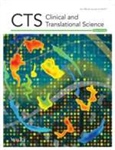Author: Lyn Frumkin, MD, PhD on June 12, 2025 
There remains a critical need to develop therapies for many diseases that currently lack treatments. This need is underscored by an appreciation that drug development, in general, has a high attrition rate, rising costs, and increased delay in bringing treatments to market. Investigator-sponsored clinical trials in academic environments can be part of known innovation that leads to significant impact. These studies are also more likely to explore the possible efficacy of an intervention in a more severe group of patients with comorbidities and a higher risk of death, including populations with high unmet medical need, while being less affected by commercial objectives. In addition, these studies are also more likely to include drug repurposing that facilitates development because the initial safety and efficacy testing in the approved indication has already been done.
Clinical trials with an investigator sponsor at academic sites have increased, in part due to studies involving drug repurposing. In contrast to industry- or government-sponsored trials, investigator-sponsored clinical studies are typically conducted at one of several academic centers and are often limited in resources (operational, financial, patient number), which challenges the ability to detect clinically meaningful effects. These studies can serve as crucial pilot studies to inform the design of larger, more definitive clinical trials. Drawing from the experience of working with clinical researchers in academic settings, this tutorial presents guidelines for writing clinical protocols for resource-limited investigator-sponsored studies that meet international standards of scientific and ethical rigor while optimizing the detection of meaningful signals or outcomes that can lead to investigation in larger well-controlled trials.

The comment feature is locked by administrator.